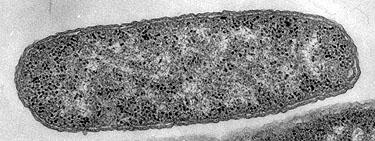Fundamentals of General Microbiology
 |
|
|
Fundamentals of General Microbiology
 |
|
|
Microbiology 410 is the first of 3 courses offered by the Department of Microbiology that deal not only with the basic biology of procaryotic cells, but also the viruses, called bacteriophage or phage, that infect these organisms. Topics covered in Micro 410, a required course for microbiology undergraduate majors, surveys the general properties of prokaryotes and their phages without focusing on any one species or phage group. Topics include the structural organization of a prokaryotic cell, growth, metabolism, the replication and expression of genetic information and its regulation, chemotaxis, phage replication strategies, and mechanism of gene transfer. The goal of this course is for students to have a better appreciation and understanding of (1) why organisms in the domains Bacteria and Archaea have been so success in colonizing every imaginable ecological niche on earth, (2) how important and essential these organisms are in our biosphere, and (3) why they have been the experimental organisms of choice to study the life processes occurring in cellular organisms. Micro 410 course materials are available for Fall Quarter 2009. Course Prerequisites: A year of biology (Biology 180, 200, and 220 or its equivalent), and two quarters of organic chemistry. A laboratory course, Micro 402, Fundamentals of General Microbiology Laboratory (A,Sp), may be taken concurrently with Micro 410 or Micro 412. The laboratory provides opportunity for students to isolate and identify a broad range of nonpathogenic bacteria from natural sources using a variety of microbiological and biochemical techniques. Related exercises include genetics, quantitation, and growth kinetics.
In Microbiology 411 (Genetics 411), Gene Action, the importance of genetics to our understanding of cell function and regulation is further examined. The laboratory component of the course provides practical experience in experimentation and problem solving designed to contribute to the understanding of the concepts being presented in the lecture.
In Microbiology 412, an in-depth coverage of the major groups of non-medically important bacteria is presented. A survey of medically important bacteria is presented in Micro 442.